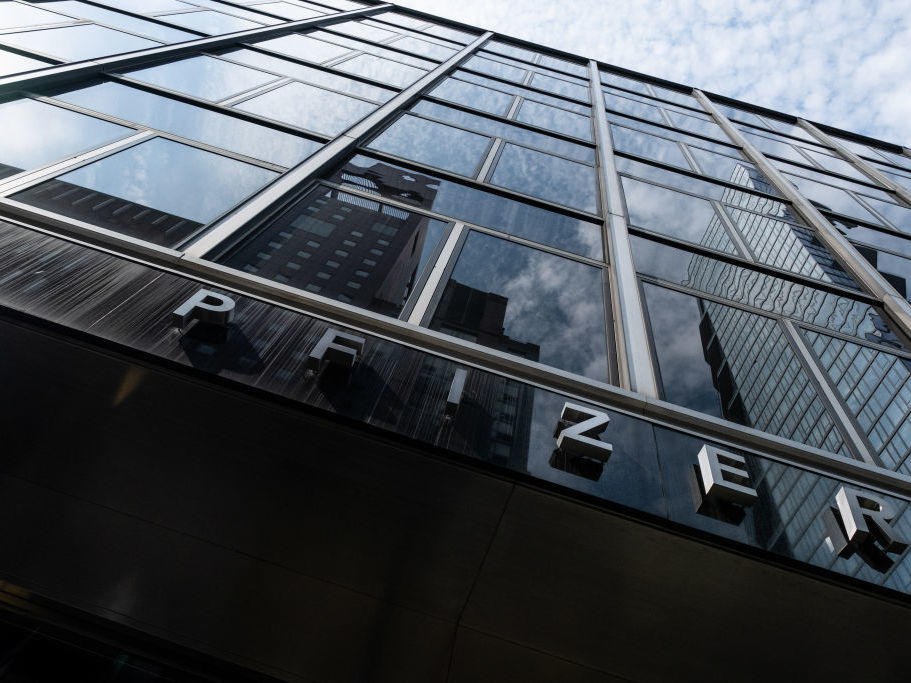Section Branding
Header Content
U.S. To Get 100 Million Doses of Pfizer Coronavirus Vaccine In $1.95 Billion Deal
Primary Content
The federal government has reached a $1.95 billion deal with Pfizer to acquire 100 million doses of its vaccine candidate against the coronavirus if the Food and Drug Administration OKs it. The vaccine would be free to Americans, according to the deal, though health care providers could charge to administer it.
The Department of Health and Human Services and the Department of Defense announced the deal Wednesday as part of Operation Warp Speed, the Trump administration's push to have a coronavirus vaccine widely available by January.
Pfizer is working on the vaccine with BioNTech, a German company. Clinical trials began in April, and Pfizer announced positive early results this week, though it has yet to announce that data have been vetted and published in a medical journal. Larger safety and efficacy studies could begin later this month.
"If the ongoing studies are successful, Pfizer and BioNTech expect to be ready to seek Emergency Use Authorization or some form of regulatory approval as early as October 2020," the company said in a statement.
AstraZeneca, Johnson & Johnson, Moderna and Novavax have already received large contracts as part of Operation Warp Speed.
"Through Operation Warp Speed, we are assembling a portfolio of vaccines to increase the odds that the American people will have at least one safe, effective vaccine as soon as the end of this year," HHS Secretary Alex Azar said in a press release.
The agreement also allows the government to acquire an additional 500 million doses of the Pfizer vaccine.
Concerned about price gouging, U.S. Rep. Jan Schakowsky, D-Ill., asked vaccine manufacturers at a House Committee on Energy and Commerce hearing on Tuesday whether they would commit to selling their vaccines at no profit.
Moderna and Merck declined to make this pledge. AstraZeneca said its existing deal with the federal government stipulated that it would sell 300 million doses to the government "at no profit." Johnson & Johnson said it would provide its vaccine "at a not-for-profit price during the pandemic." Pfizer did not make a similar statement in its announcement of Wednesday's deal, and Schakowsky noted that the company had previously said it would sell its vaccine for a profit.
"We recognize that these are extraordinary times, and our pricing will reflect that during the term of the pandemic," Pfizer's chief business officer, John Young, said during the hearing. "We'll price our potential vaccine consistent with the urgent global emergency that we're facing. And secondly we also believe, and critically, that COVID vaccines should be free to the public. A vaccine is meaningless if people are unable to afford it."
He applauded the CARES Act, which he said would allow many patients to get the coronavirus vaccine with no cost-sharing. "We'll see what that means," Schakowsky said.
Copyright 2020 NPR. To see more, visit https://www.npr.org.

